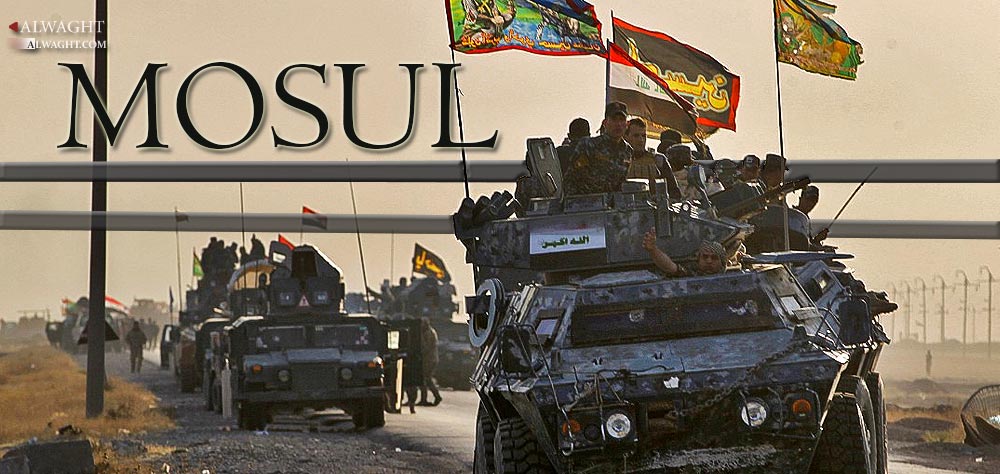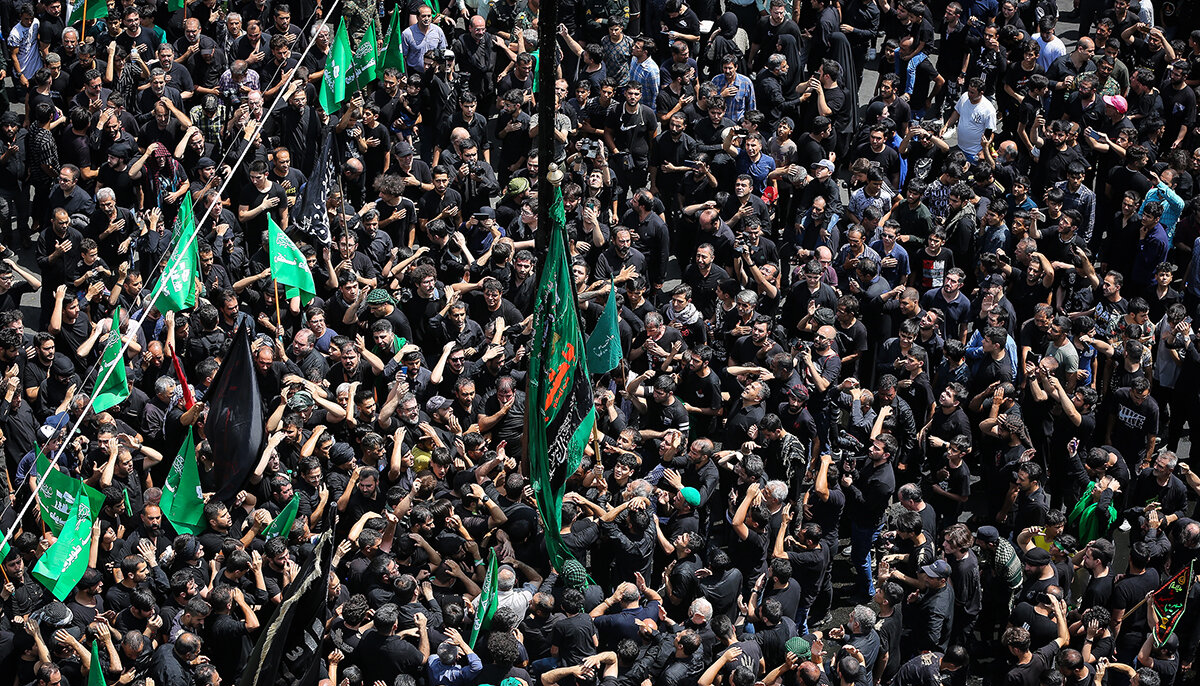Alwaght- The battle for Mosul has entered its second day as Iraqi forces are advancing on that front in the Nineveh province. Already, the prospects are looking promising for the Iraqis as driving out ISIS from the city would mark a major step toward the final liberation from the terrorist group. However, these battlefield developments have triggered another battle as international and regional powers see Iraq as a fertile ground for their ambitions.
When the Mosul operation kicked off Monday morning after months of preparation, foreign agendas unraveled with the US, France, Saudi Arabia, and Turkey planning to chart Iraq’s post-ISIS phase.
American and French fighter jets have joined the operations from above, but that is far from being reflective of any distant approach to Washington and Paris’s post-ISIS agendas. However, other regional agendas are being unveiled as Turkey, Saudi Arabia, and their allies are spluttering sectarian venom.
Ankara has been keen to escalate its rhetoric. Turkish President Recep Tayyip Erdogan claimed his country has the right to take part in the operation because of “history” and the border that separates the two states.
In Mosul “a history lies for us. If the gentlemen desire so, let them read the Misak-i Milli (National Oath) and understand what the place means to us,” Erdogan declared.
He also procured an early 20th-century irredentist document that claimed the Iraqi city of Mosul as Turkish soil.
Erdogan’s remarks reflected Turkish eagerness to join the operation by the Iraqi Army, Kurdistan’s Peshmerga Forces and the US-led Coalition to liberate Mosul from the grip of ISIS.
Surely, Erdogan’s zeal is not driven by cordial neighbourly relations but rather by how such an involvement would benefit Turkey. Erdogan wants to be on the ground to get a chance to plunder Iraq. With so many sides looking to take advantage of the country, Turkey is opting for a front row seat.
Turkey’s strategy is replete with sectarianism, capitalizing on the Sunni fighters in Bashiqa north of Mosul. The presence of Turkish troops has already angered Baghdad, rightfully so since it is a breach of its sovereignty.
Turkey has warned that if predominantly Sunni Mosul is liberated by Shiite troops, a sectarian war might break out. Premier Binali Yildirim said that attempts to change the “demographic structure of Mosul after Daesh [ISIS] is taken out would spark a big civilian and sectarian war."
However, this caveat stems from interest. The Iraqi army includes Sunnis and though the majority is Shiite, its goal is to remove ISIS, the extremist group that is terrorizing Iraqis of all sects.
These warnings seem repetitive of the ones stated before the battle against ISIS in the city of Fallujah-- traditionally a Sunni stronghold -- and elsewhere in the country which have failed to materialize.
Similarly, the Saudis are making the same calls. No surprise there.
Saudi Foreign Minister Adel al-Jubair reiterated on Monday Riyadh’s stance on Shiite forces’ participation in the Mosul operation. He claimed Saudi Arabia fears “mass atrocities".
"We oppose any kind of involvement by the Shiite militias,” The Guardian newspaper quoted Jubair as saying at a press conference in London.
Both Turkey and Saudi Arabia have solidified relations with Atheel al-Nujaifi and Rafea al-Isawi in Iraq’s western provinces. It is a well-established fact that these two figures seek to turn the provinces of Nineveh and Anbar into separate regions, following in the footsteps of the semi-autonomous Kurdistan region which has expanded its borders since ISIS´s invasion. The Kurdish President has also repeatedly called that the Sykes-Picot borders be redrawn. There is also information about French support for a referendum on this issue within the region following the anticipated liberation of Mosul.
Meanwhile, authorities are wary of the various plots to divide it after Mosul is liberated. Engaged in heavy fighting against ISIS, on the one hand, and concerned about the future of its northern territories, on the other, the government in Baghdad has maintained its stance on the Popular Mobilization Forces in spite of the efforts to dismantle its cooperation with the army.
In a statement, the PMF stated that “the agreement between the General Commander of the Armed Forces and the leaders of the Popular Mobilization Forces stipulates that Peshmerga forces must be prevented from entering the center of Mosul. If they enter, then the PMF must foil them to maintain the Arab and Iraqi identity of the city.”
The statement further added: “The main function of the presence of the Popular Mobilization Forces in Mosul is to fend off possible dangers that Mosul might face after ridding it of ISIS, at the forefront of which is Turkish greed.”
There is no doubt that liberating Mosul from ISIS would be a strategic and symbolic achievement. It was the first city to fall under the group’s control and has become to be known as the capital of the ISIS caliphate in Iraq. A defeat for the terrorist group in Mosul is expected to hit it hard but even with its expected regression, Baghdad is looking at a tumultuous post-ISIS future.



























